4 Exercises to Keep Your Senior Dog Healthy and Active
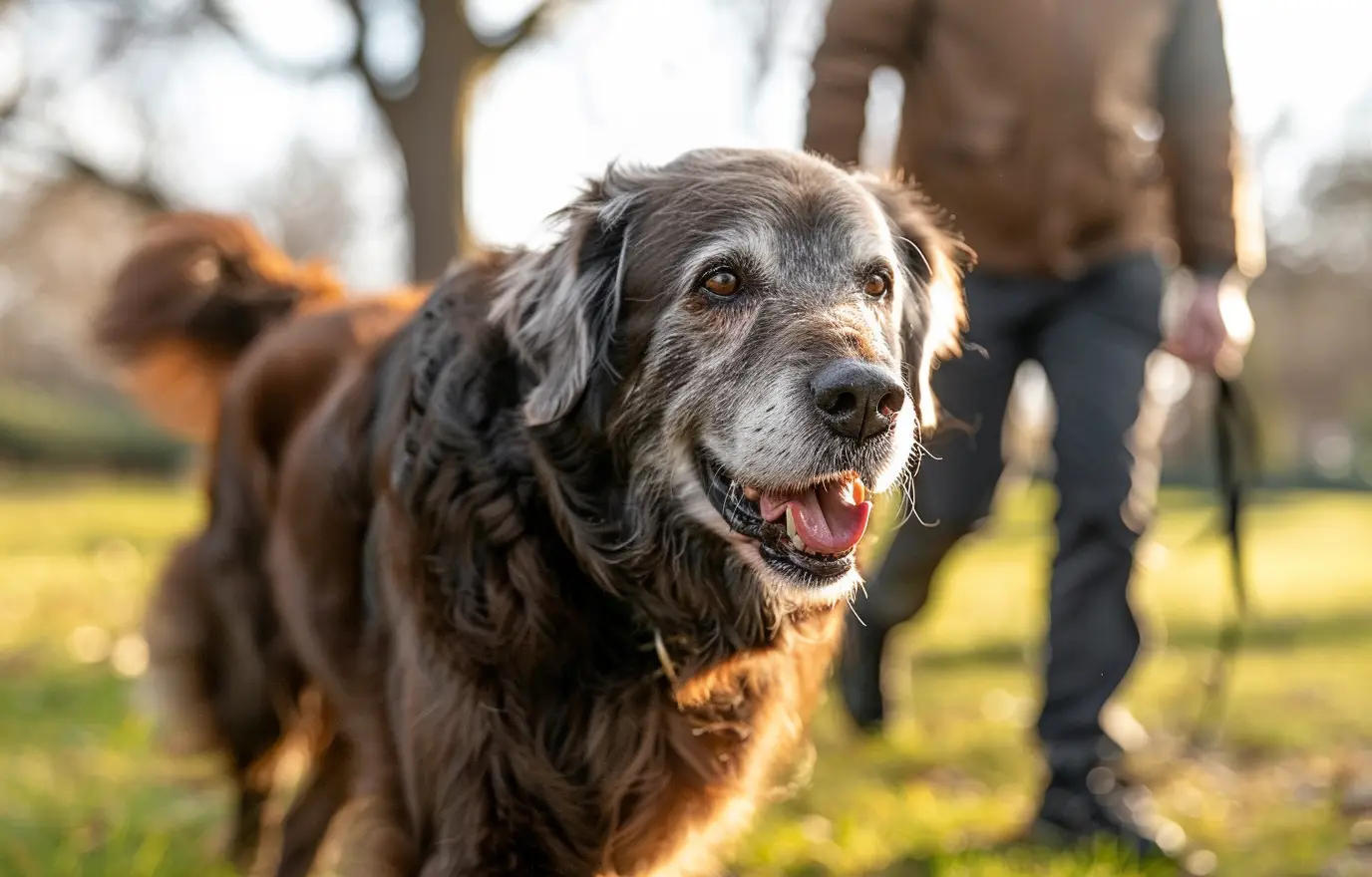
As dogs get older, they can face both physical and mental challenges that impact their daily lives. You might notice your senior dog having difficulty with stairs, struggling to rise after naps, or slowing down during playtime. These changes are natural as they get older, but they don't mean your dog can't still enjoy life. Incorporating low-impact exercises, like calm leash walks, can help manage health issues while keeping your senior dog active and engaged. Always check with your vet before starting any new exercise routine to make sure it’s appropriate for your dog’s age and health.
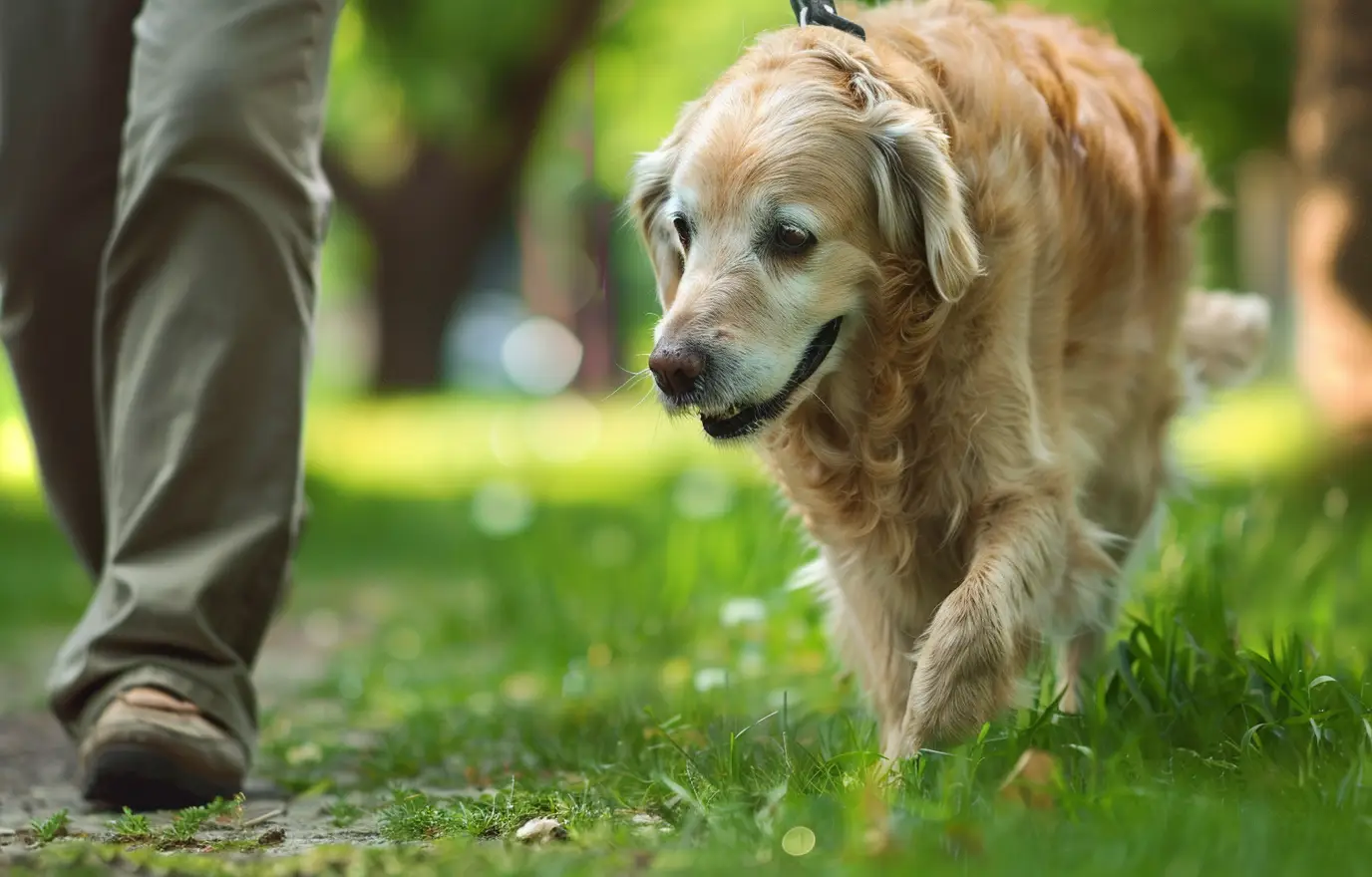
Walks: A Daily Delight
Regular walks are essential for a senior dog's health, offering both physical and mental benefits. They can help with:
- Weight Control: Burning calories through exercise helps maintain a healthy weight, which can prevent additional strain on joints and muscles.
- Joint Health: Regular walks keep joints moving, promoting flexibility and reducing stiffness in aging dogs.
- Digestive Health: Consistent exercise, like walking, helps maintain a healthy digestive system and promotes regular bathroom habits.
- Emotional Well-being: Walks provide a sense of routine and comfort, strengthening the bond between you and your pet.
- Mental Stimulation: The sights, sounds, and smells during a walk engage your dog’s senses and keep their mind sharp.
When walking a senior dog, consider a calm leash walk to keep the pace slow and relaxed, ensuring a comfortable outing. Gradually increase the duration and intensity of walks as your dog builds stamina, but always adjust to their needs, especially as they approach the end of their pet’s life.
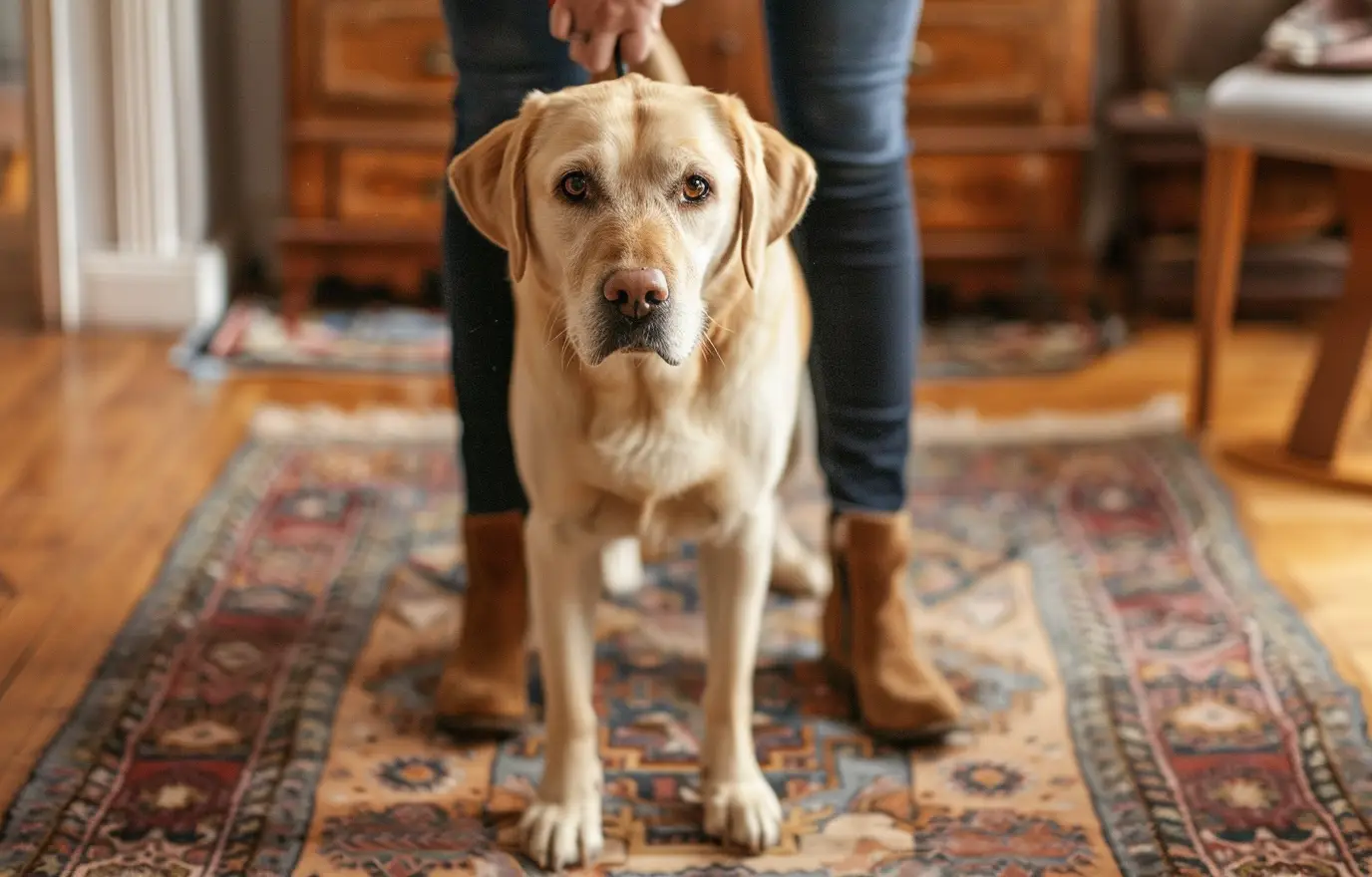
Balance Exercises: Strength and Stability
Maintaining balance is crucial for preventing falls and supporting overall strength. Try the “Leg Lift and Hold” exercise:
- Setup: Have your dog stand on a nonslip surface.
- Lift: Gently lift one of their legs while supporting the joint with your other hand.
- Hold: Keep the leg lifted for 5-10 seconds, then lower it. Repeat with each leg.
Do this exercise 2-3 times per day, gradually increasing the hold time as your dog gets stronger. Reward with praise or a treat!
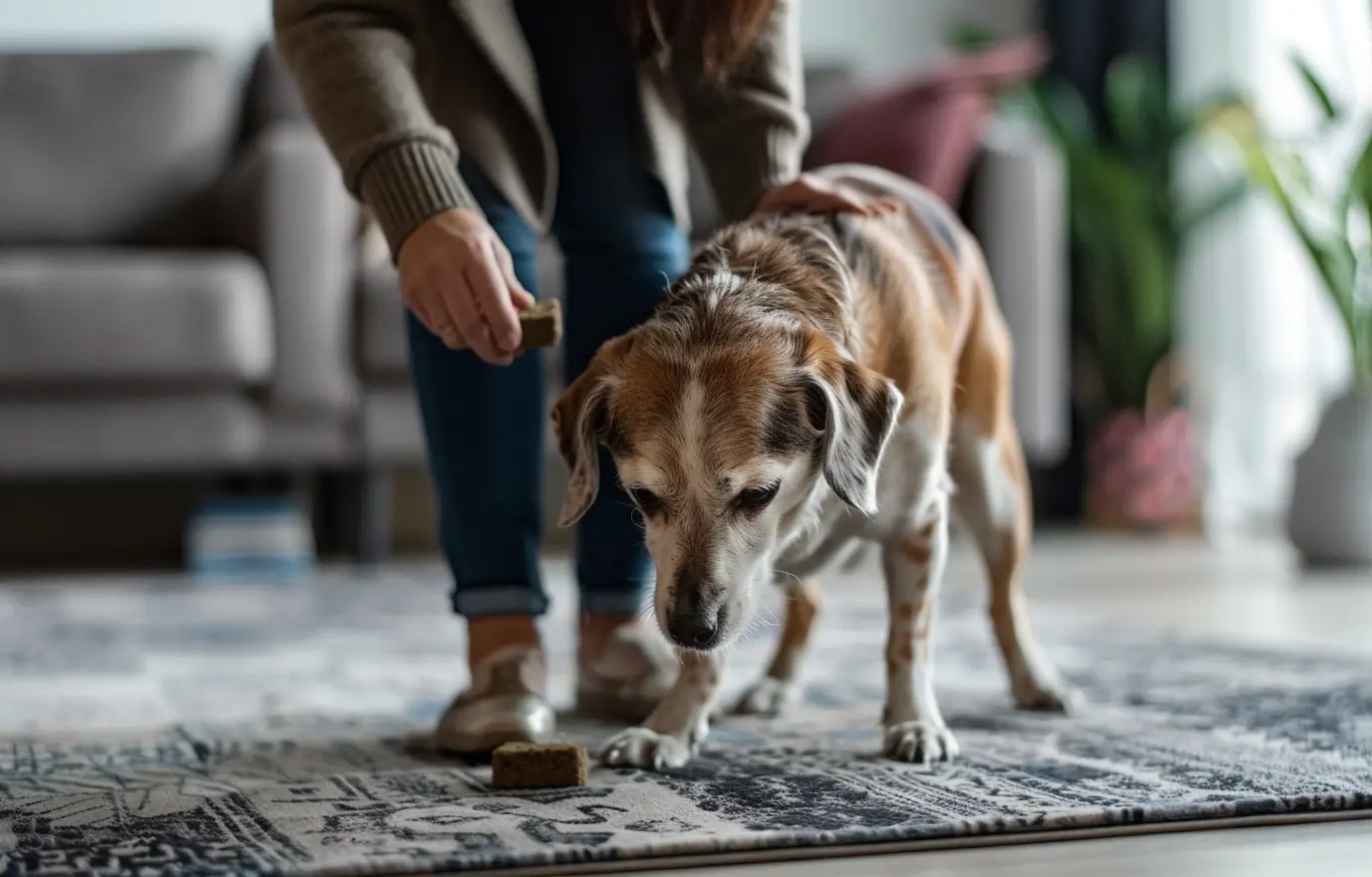
Mobility Exercises: Flexibility and Comfort
Flexibility is key for a comfortable, active life. The “Cookie Stretch” helps maintain spinal flexibility:
- Setup: Have your dog stand still with all paws on the ground.
- Stretch: Use a treat to guide their nose in various directions (up, to the side, towards their chest, etc.).
Hold each stretch for 5-10 seconds, repeating three times on each side. Adjust based on your dog’s flexibility and comfort level.
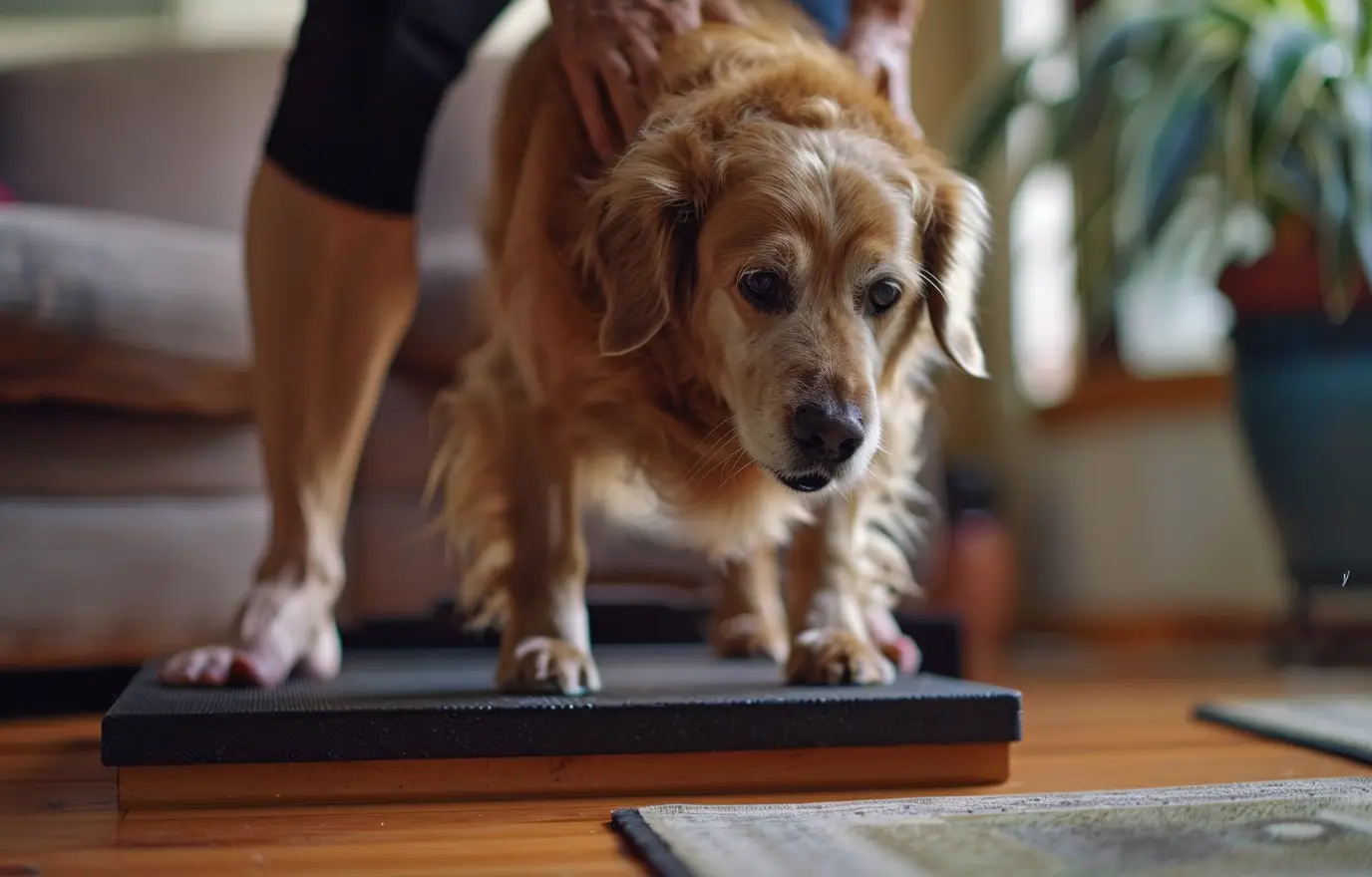
Strength Exercises: Building Muscle
As dogs age, they often lose muscle strength. Strengthening exercises, like the “Two Paws Up,” can help:
- Setup: Place your dog’s front paws on a low, nonslip platform.
- Lift: Have them step up with their front paws, then step back down.
Start with 2-3 repetitions, increasing the duration and height of the platform as they build strength. Ensure they’re comfortable and adjust as needed.
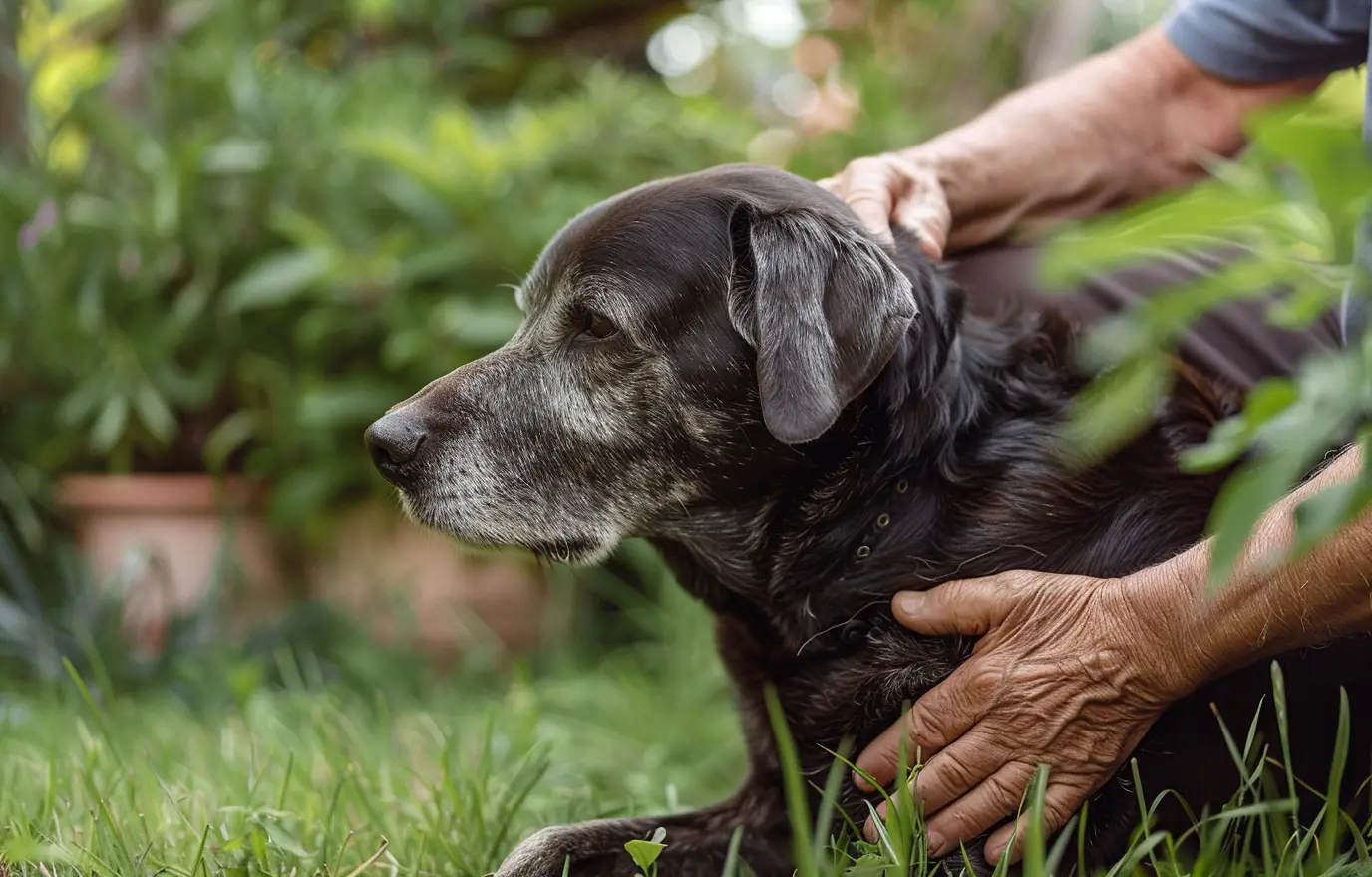
What to Watch Out For
Older dogs might tire more quickly. If your dog seems sore, overly tired, or reluctant to exercise, scale back and make adjustments. Shorter sessions and cooler weather can help prevent discomfort. Gradually build up their endurance to keep them active and happy.
With these fun and practical exercises, you can help your senior dog enjoy their golden years with a wagging tail and a bounce in their step!

